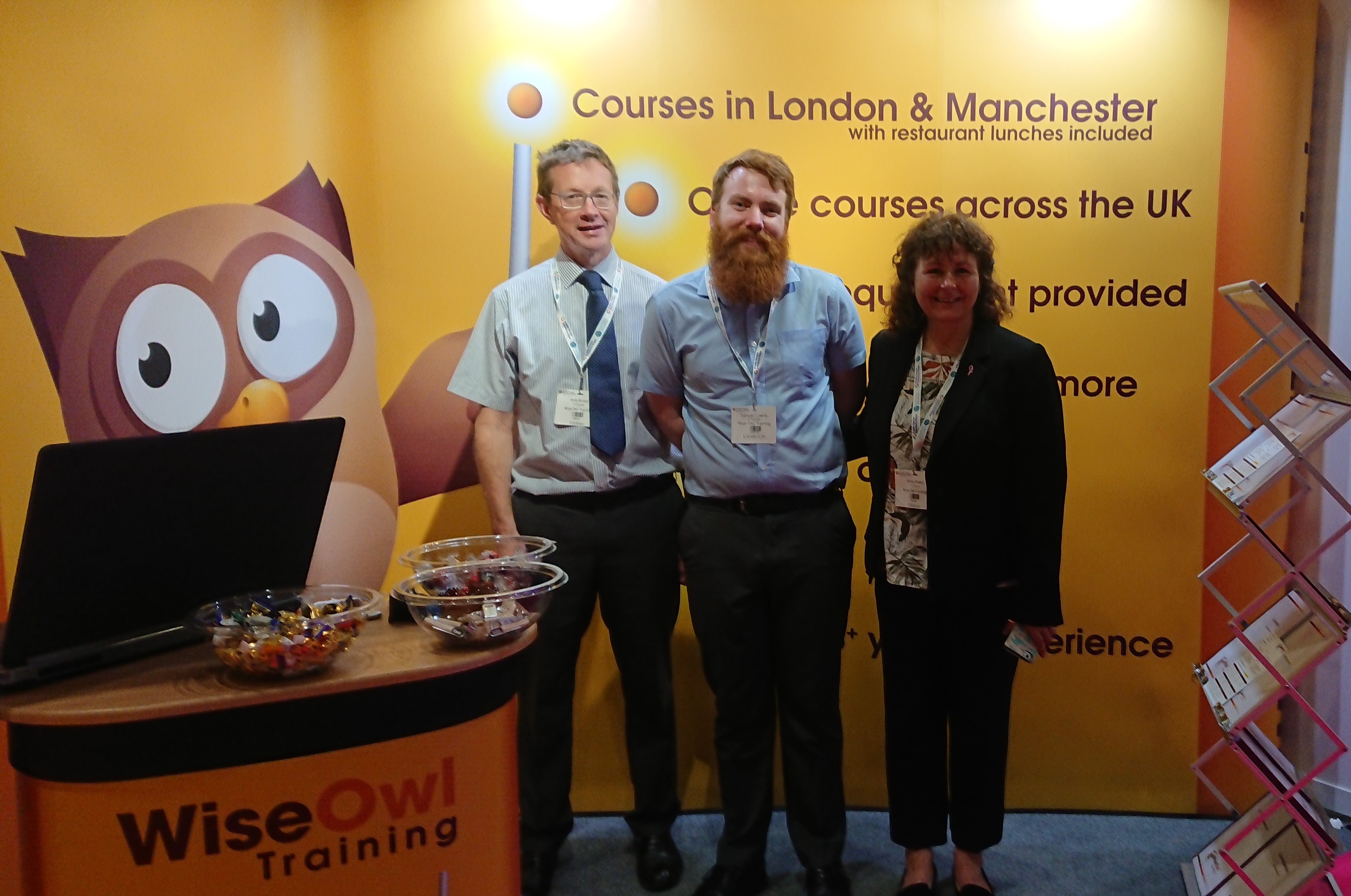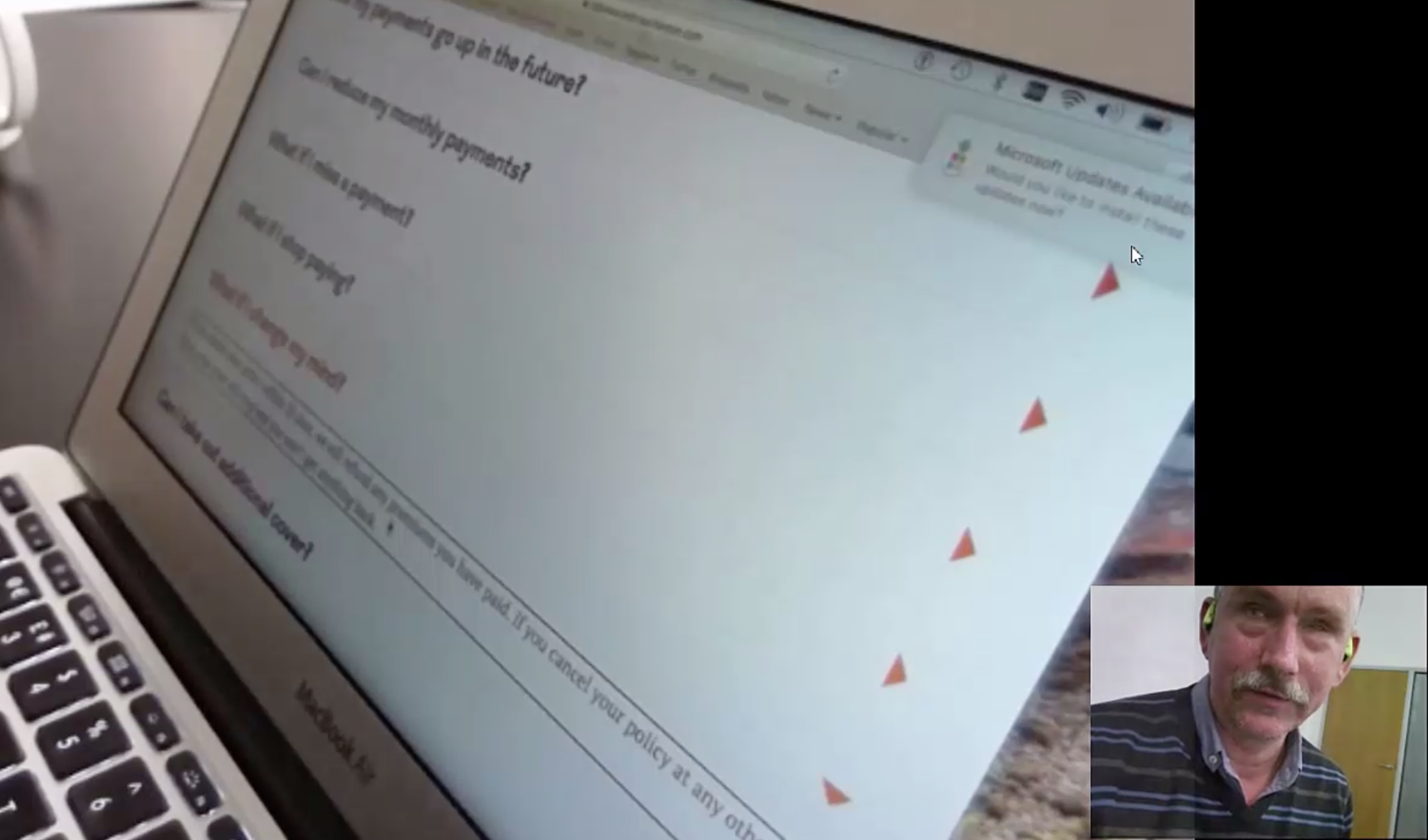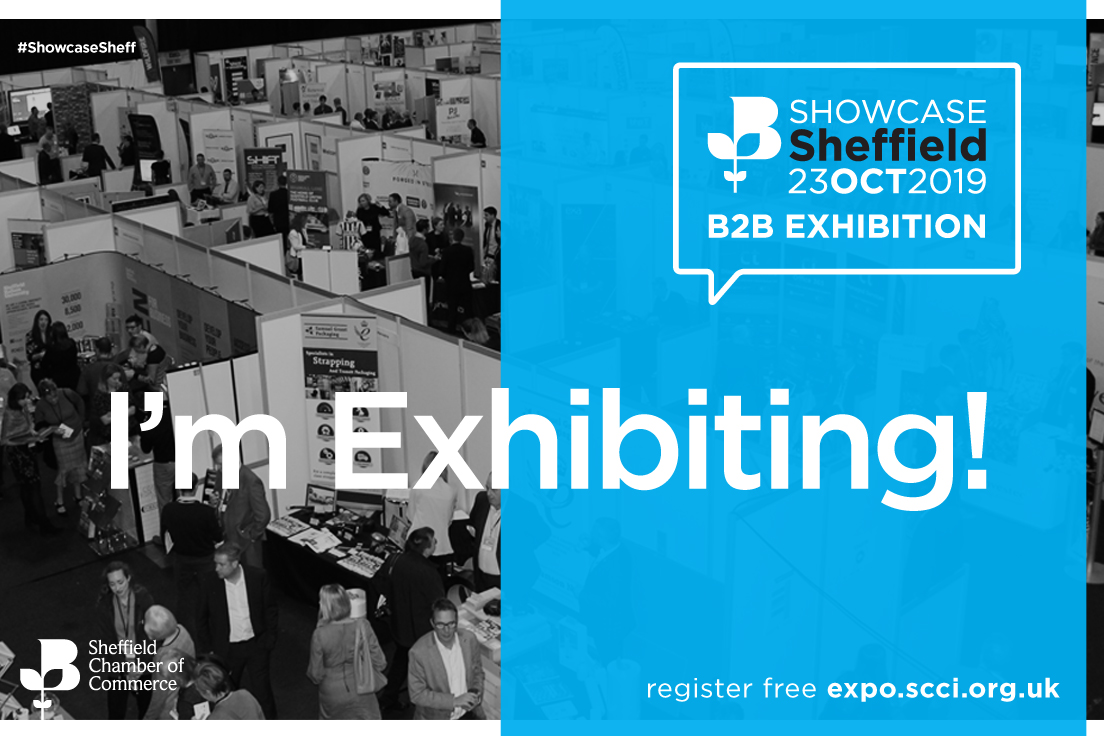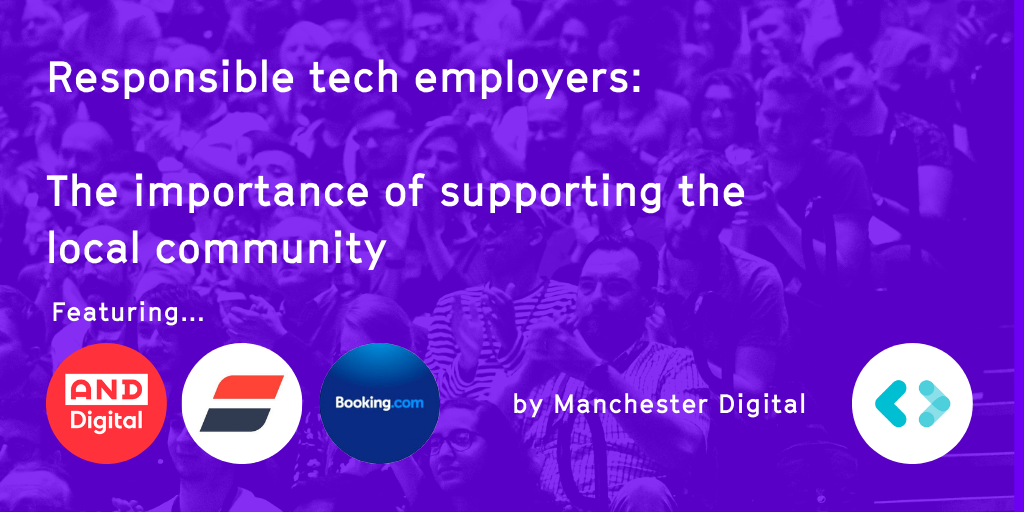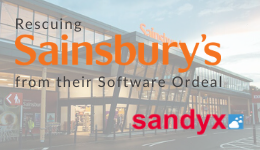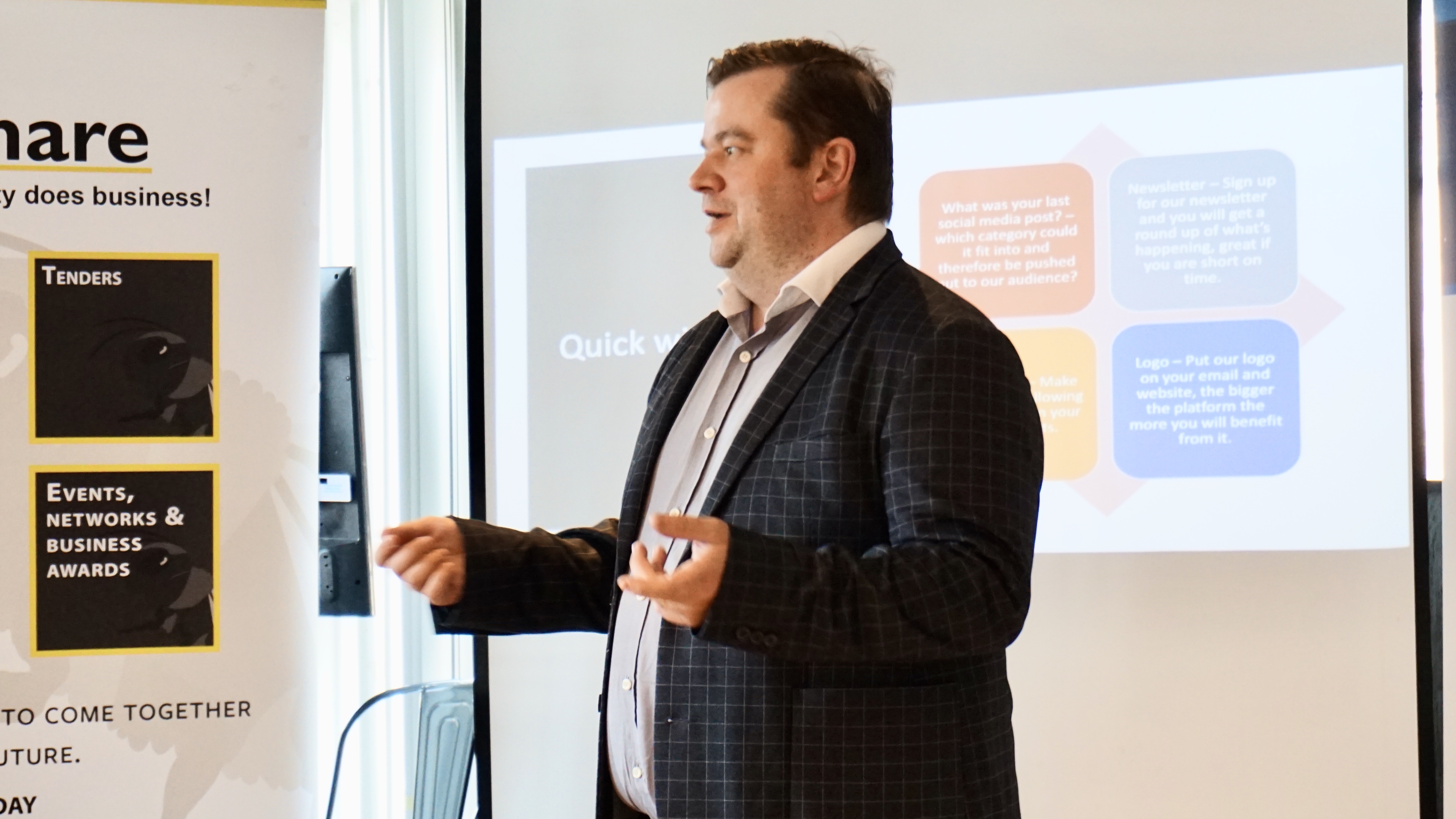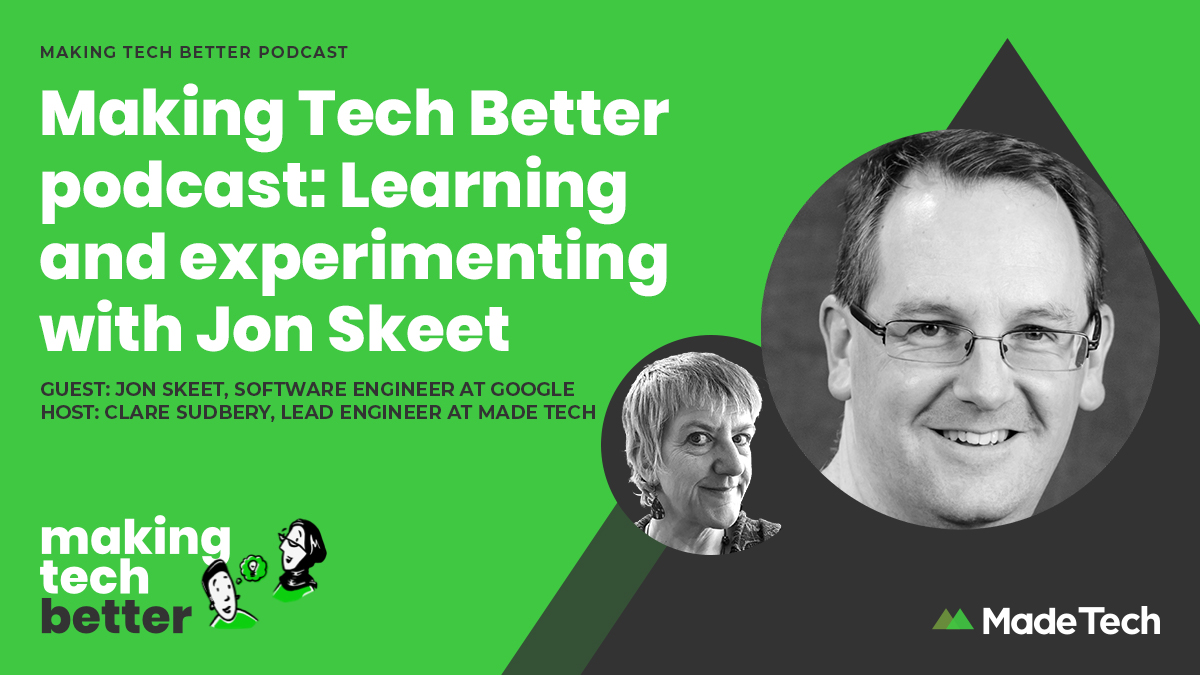
When we’re kids, we learn primarily by trying new things. We learn that we can get orange when we mix red and yellow paint, or that combining baking soda and vinegar can propel a bottle rocket towards the sky. We usually learn as we play — but as adults, how can something we do in our free time translate into our working lives?
In the third episode of our Making Tech Better podcast, Clare chats to published author, Google software engineer and renowned Stack overflow contributor Jon Skeet.
In this episode, Jon reflects on the different ways his experiences — and experiments — have impacted his learning processes between work and free time, spanning from feminism to drumming.
Hit play below to listen to this episode in full, and keep reading to find out our top three takeaways.
Learning how to be a feminist isn’t about believing in equality
Clare notes that Jon self-identifies as a femininist in his Twitter bio, adding that discussing gender balance at conferences is how they first met. Jon opens up on how his views of feminism have evolved as he has discovered that it’s more than just a journey for equality.
“I would always have regarded myself as someone who treats equality as an important thing, but probably wouldn’t have defined myself as a feminist before,” Jon reflects. “Now, I’ve changed my mind on that partly because the vast, vast, vast majority of inequalities do adversely affect women. All over the place in our industry we tend to say well, we’re not going to rely on anecdotes, there has to be data. And there’s plenty of data around on that front.
“I read a really good post by a woman addressing men who identify as feminists, giving some advice, which was really useful advice. Part of it is you will get things wrong; you will mess up and you will be taken to task for that. That’s the right thing to happen, you should just acknowledge it, say sorry and go back to being as good an ally as you can. Because once you’ve seen the inequality, you can’t just go back to sleep.”
The best learning often starts with experimentation
Jon talks about how he bought an electronic drum kit to play during his free time — but that he’s experienced some unexpected benefits in his learning as a result.
“Let’s start with, I am not a good drummer, by any means,” he comments wryly. “I started drumming about a year and a half ago. So, I took the drum kit home and enjoyed playing with it, and then started thinking okay, I bought this so I could do things other than hitting the drums.”
Jon describes how he experimented with his drum kit in different ways using a console app — but that this experimentation and problem-solving in his free time is a key part of his learning process at work.
“Drum kit explorer has gone from being completely untested to testable,” he notes. “Certainly, if I were writing this for anything other than fun, it would be; I need a bevy of unit tests and some integration tests around all the code I’ve got. In reality, I haven’t got time for that. I’ve got other stuff to be playing with.”
Learning at work and home is a symbiotic relationship
Clare asks Jon if his tinkering with the electronic drum kit has impacted the way he learns at work.
“There’s definitely connection,” he says. There are significant differences as well, but there are connections in terms of how I learn things. I can experiment there in free time and then I’ve got all that knowledge and experience waiting for me in my work environment.
“Sometimes, it goes the other way,” he adds. “Sometimes I will have a problem reported to me in work and think, oh, that’s going to affect [another project] as well. There’s a lot of crossover in terms of learning and ways of learning, so I do tend to approach problems the same way.”
If you liked this content, check out our previous episodes:


